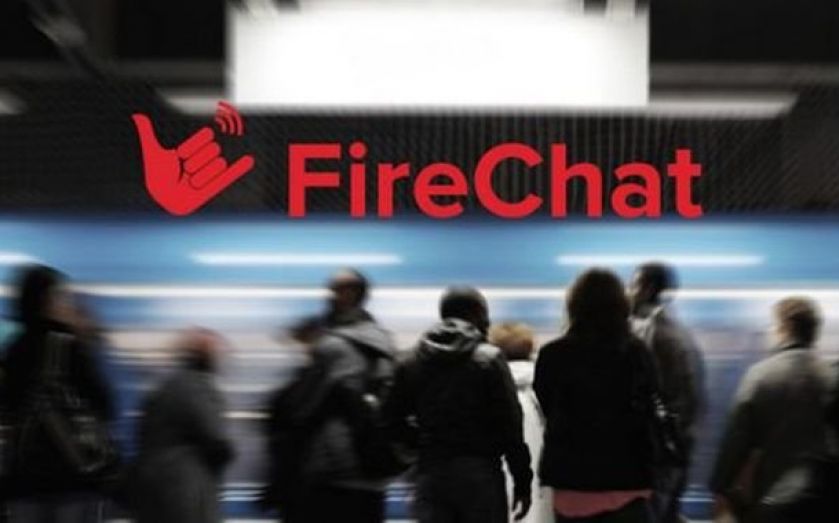| Updated:
What is FireChat and how are protesters in Hong Kong using it?

Protesters in Hong Kong are using mesh networking to avoid detection from authorities while organising themselves.
This weekend tens of thousands of pro-democracy protesters – many of them students – gathered to protest mainland China's ongoing selection of the city-state's chief executive.
In doing so, many protesters have started using this relatively new form of communication, which allows them to go under the radar of censorship-loving leaders, alongside more mainstream social media platforms.
FireChat is probably the most prominent of this type of networking. It launched as an app in March this year, using a feature on Apple's iOS7 (and subsequently Android) called multipeer connectivity – a way of allowing users to hook up to each other using Bluetooth or wifi rather than standard reception.
The mesh means messages are not sent through a big central server, but directly through the grid of phones that have signed up.
According to Gizmodo, FireChat's parent company Open Garden has recorded 100,000 new users from Hong Kong since the unrest started this weekend, and 33,000 users on the app at any one time.
Users have encouraged each other to download the app via social media, and then are able to discuss plans for the #OccupyCentral protests. This one Facebook post alone has nearly 2,000 shares and more than 4,700 likes.
Currently FireChat can only link people up to 200 feet apart, which limits its use to crowded areas – though this is clearly playing to a strength in a city like Hong Kong, particularly at a time when people have taken to the streets.
It has already proved successful in other places where citizens might have a reason for not wanting authorities to have access to their communications. In June this year, more than 40,000 people in Iraq downloaded it after blocks were introduced to social media.
We have seen great changes to the way protests are formed and either spread or are quashed with the growth of social media. For example, Chinese mainland has blocked access to Instagram. But mesh networks are more resilient because the authorities cannot simply shut the network down.
Mesh networks are like Voldemort after he split his soul into horcruxes (only not evil). Destroying one part won't kill it unless you destroy each point of access; someone would have to turn off Bluetooth on every phone using FireChat to completely break the connection. This hard-to-break connection isn't super important for casual chats, but during tense political showdowns, it could be a lifeline.
This doesn't appear to have been the aim of the net-neutrality fans at Open Garden, whose website says:
Our technology is offering solutions to the mobile telco industry by avoiding congestion of wireless data networks and providing a better internet access through carrier aggregation, peer2peer and mesh technology.
Adding:
On a longer term vision, Open Garden is willing to enable a free wireless broadband internet in rural zones to improve access to knowledge, education and stimulate innovation and entrepreneurship.
And the main selling point for people downloading the app in London could well be that you can use it on the Tube…